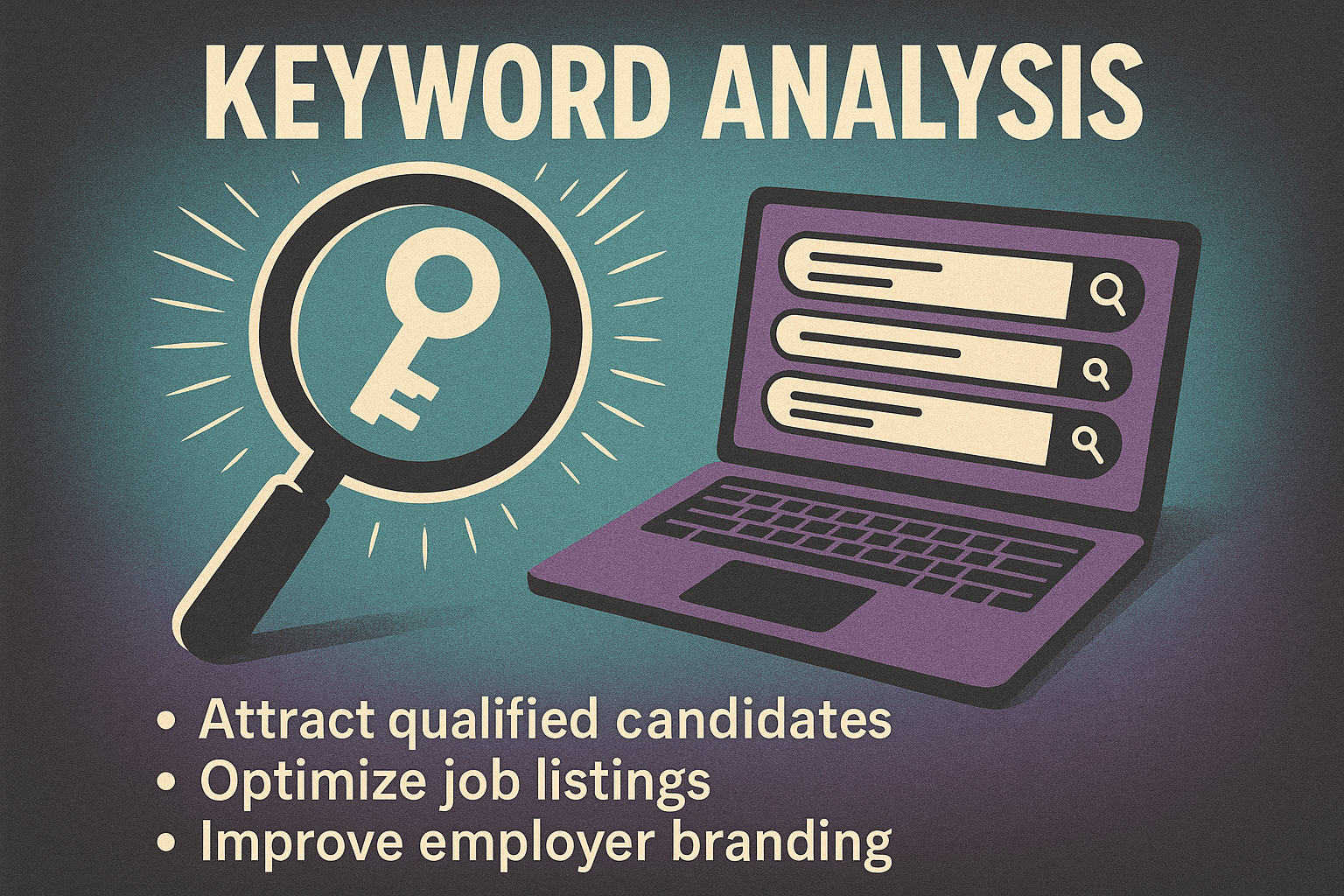Schedule a Demo
When it comes to attracting top Marketing Manager talent for HR services, the right keywords can make all the difference. In my experience working with various industries, I've found that a strategic approach to keyword selection can significantly boost your recruitment efforts. Let's delve into the specifics of how to optimize your keyword strategy to target the best candidates.
Keywords play a crucial role in the recruitment process, particularly when it comes to attracting specialized talent like Marketing Managers. These professionals often use specific terms when searching for new opportunities, and tailoring your job listings to include these keywords can increase visibility. From my interactions with HR teams, I've noticed that a well-crafted keyword strategy not only attracts more applicants but also ensures that you're reaching the right audience.
The primary keyword phrase for attracting Marketing Managers in HR services would be "HR Marketing Manager." This should be used 3-5 times throughout your job listings and marketing materials. Other related keywords to consider include "talent acquisition," "employer branding," "HR strategy," and "employee engagement." These terms resonate with Marketing Managers looking for roles where they can leverage their skills in a human resources context.
When crafting job descriptions, it's essential to integrate keywords naturally. Start with a compelling introduction that includes the primary keyword, such as "We are seeking an experienced HR Marketing Manager to lead our talent acquisition efforts." Follow this with detailed responsibilities that incorporate related keywords, like "Develop and implement HR strategies to enhance employer branding and employee engagement." This approach not only boosts SEO but also clearly communicates the role's focus to potential candidates.
Online job postings are often the first point of contact for Marketing Managers. To maximize their impact, ensure that your job titles and descriptions are rich with relevant keywords. For example, "HR Marketing Manager - Talent Acquisition Specialist" can be an effective title. Within the body of the posting, mention how the role involves "crafting HR strategies" and "enhancing employer branding," which aligns with what Marketing Managers are searching for.
Social media platforms are powerful tools for recruitment, and optimizing your posts with keywords can help you reach a broader audience. When sharing job openings on platforms like LinkedIn, use hashtags such as #HRMarketingManager, #TalentAcquisition, and #EmployerBranding. These can increase the visibility of your posts to professionals actively seeking new opportunities in HR services.
It's crucial to measure the effectiveness of your keyword strategy to ensure it's attracting the right talent. Use analytics tools to track how many views and applications your job listings receive when optimized with specific keywords. In my experience, this data can help you refine your approach, focusing on the terms that yield the best results. Remember, the goal is not just to attract more applicants but to attract the right ones.
While keywords are essential, maintaining authenticity in your job descriptions is equally important. Overloading with keywords can make your listings seem robotic and less appealing to top talent. Based on available research, individual results may vary, but a balanced approach that combines keyword optimization with a genuine portrayal of the role and company culture tends to yield the best outcomes.
Looking at case studies can provide valuable insights into effective keyword strategies. For instance, a well-known HR firm reported a 40% increase in qualified Marketing Manager applicants after optimizing their job listings with keywords like "HR Marketing Manager" and "talent acquisition." Such success stories can inspire and guide your own recruitment efforts, showing the tangible benefits of a strategic keyword approach.
As the job market evolves, so do the keywords that professionals use to search for opportunities. Keeping an eye on emerging trends in HR services and marketing can help you stay ahead of the curve. For example, terms like "remote HR" and "digital talent acquisition" are becoming more prevalent as companies adapt to new ways of working. Staying updated on these trends ensures your keyword strategy remains relevant and effective.
Effective keyword strategies often require collaboration between HR and marketing teams. Marketing professionals can provide valuable insights into SEO best practices and help craft job listings that resonate with Marketing Managers. In my work with various organizations, I've seen how this partnership can lead to more targeted and successful recruitment campaigns.
Artificial Intelligence (AI) is increasingly playing a role in optimizing keywords for recruitment. AI tools can analyze job listings and suggest the most effective keywords based on current trends and search behavior. While AI can enhance your strategy, it's important to use it as a tool rather than a replacement for human judgment. Combining AI insights with your own expertise can lead to a more nuanced and effective approach.
Finally, the key to a successful keyword strategy is continuous improvement and adaptation. Regularly review and update your keywords based on performance data and feedback from applicants. In my experience, the most effective recruitment strategies are those that evolve over time, responding to changes in the market and the needs of your organization.
